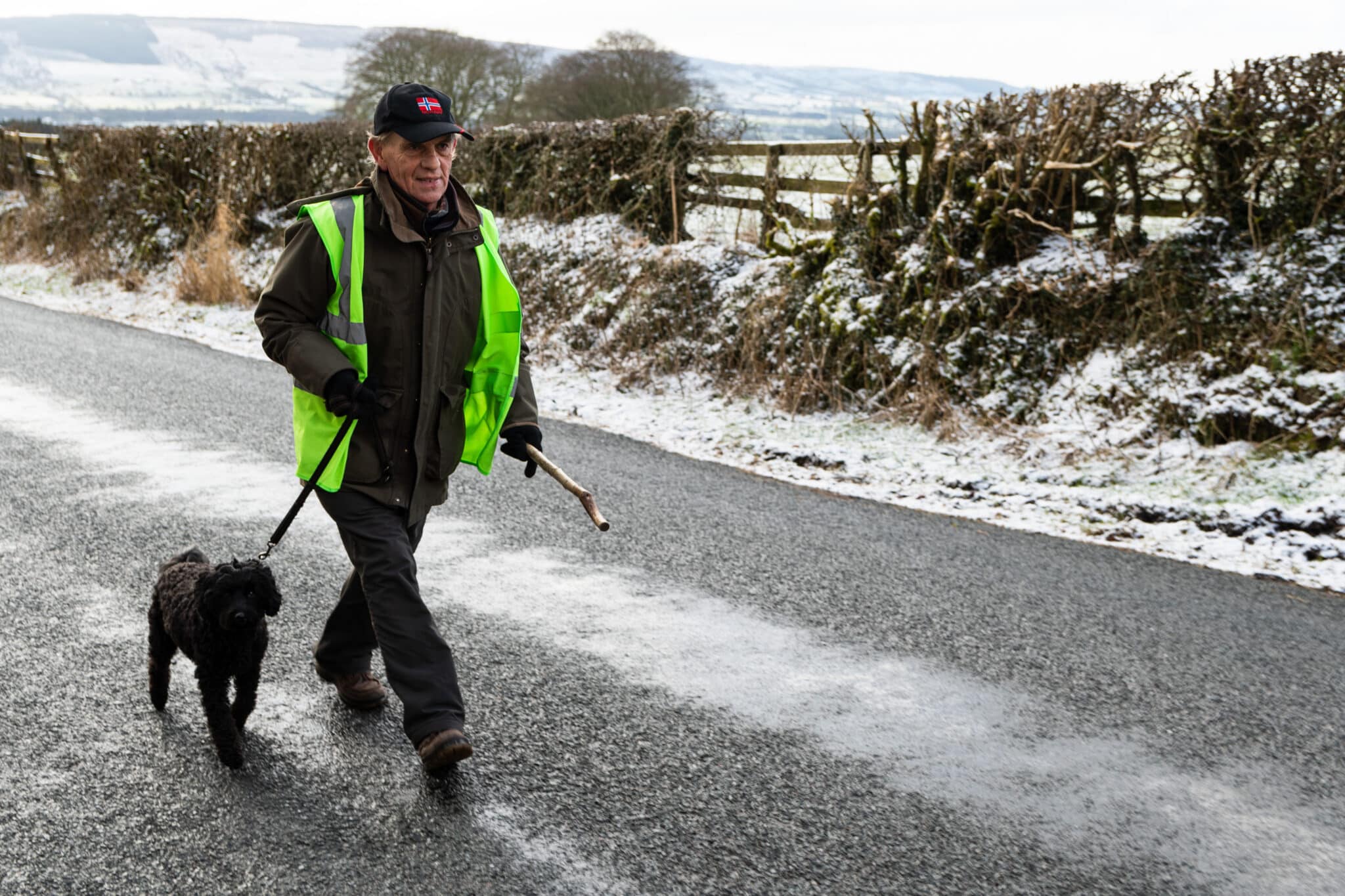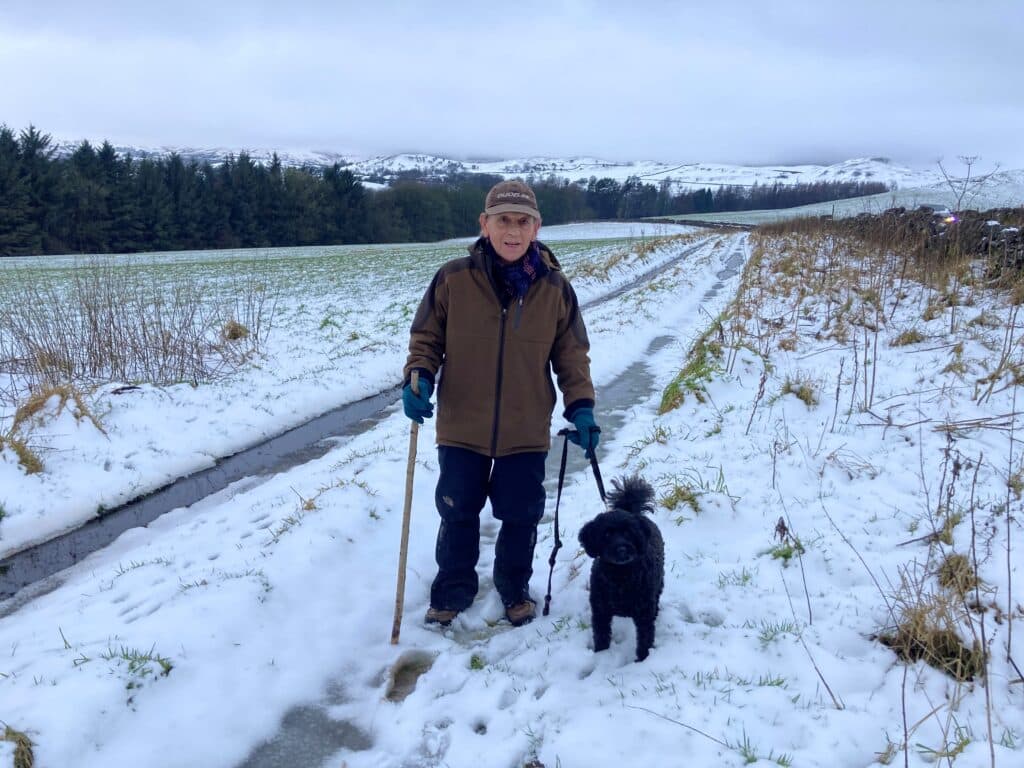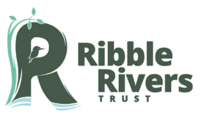
Philip Lord’s Walking Challenge
Philip Lord’s walking challenge has now ended, with Philip walking over 500 miles and raising over £5,000. Thank you to everyone that donated.
What was Philip Lord’s walking challenge?
Our 82 year old Chairman, Philip Lord, is taking part in his very own walking challenge!
Each day (except from Sundays when he does it twice!) Philip is walking from his home and completing a 4.7 mile circuit of the area, known as The Ring of Whitewell. Philip will shortly be reaching his initial target of 100 miles, but he hopes to carry on this daily walk well into the future.
Alongside his four-legged friend Freddie, Philip is hoping to raise enough money to cover the tens of thousands of pounds of extra costs the Ribble Rivers Trust has incurred as a result of the coronavirus pandemic. You can donate via Go Fund Me.
Your kind donations help Ribble Rivers Trust to conserve and improve the River Ribble, and the rivers across Lancashire and North Yorkshire that flow into it, for wildlife, for people, and for the future generations.
an update from Philip lord, 22nd March

Philip and Freddie have completed the final walk of Philip’s fundraising challenge.
The 500 miles mark was reached with our CEO Jack Spees, Philip’s long-time friend and colleague, by his side (at a suitable distance, of course!).
It’s been an amazing feat of endurance for our 82-year-old chairman, and I think everyone will agree that he has done amazingly.
Now for Philip’s last update.
“First, I would like to thank everyone who has so generously supported the Trust, myself and, of course, Freddie on our 500 mile walk around the ‘ring’ at Whitewell. Donations are still coming in, online, through the post, over the gate and out of passing car windows. I am very hopeful that they will cover the cost of our enlarged office, which will achieve effective, safe, social distancing for our staff.
Philip Lord, Ribble Rivers Trust Chairperson and #RiverHero
During this difficult year they have been working from home, as well as in the great outdoors, and both Jack Spees, our CEO, and myself feel that is important for them to be able to work together, bounce ideas off each other, but in a safe environment. They are a wonderful team, each with their own skills, and have achieved great results in difficult circumstances. This week I have been joined by one different member of staff on six walks and it has been very enjoyable, very informative and a pleasure to talk to them individually.
By coincidence, a restoration project that the Ribble Rivers Trust has been working on, Primrose Nature Reserve, is being officially opened on the 26th March, for public use. This former mill lodge, made by damming the river, was typical of the use of our rivers in textile manufacturing, with very little thought of the damage to wildlife and its’ habitat. After the decline of the cotton industry and mill closures, sites like this have become derelict over many years. A fish pass, the longest in England, has been built and this will allow fish to migrate up Mearley Brook for the first time in two hundred years. This eight-acre site will now be a green lung for the people of Clitheroe and a haven for wildlife.
The reason I have been walking 500 miles is to support the RRT in efforts like the above; tree planting; the education and appreciation of young people about the natural world and to try to combat climate change in any way we can, and to leave a better natural world for future generations.
Joan and I, both keen gardeners all our married life, have noticed how weather patterns and climate are quickly changing. We can now grow plants that did not flourish in our early days here. We often had snow and frosts until early April, followed by periods of drought, while now, we have occasional short-lived snow, but we have milder, very wet winters, with floods- all over the country. The extreme weather conditions that we are experiencing resulting, for example, in shortages of water, moorland and forest fires and winter flooding we all now know are all signs of a changing climate and is detrimental to all wildlife and people.”

